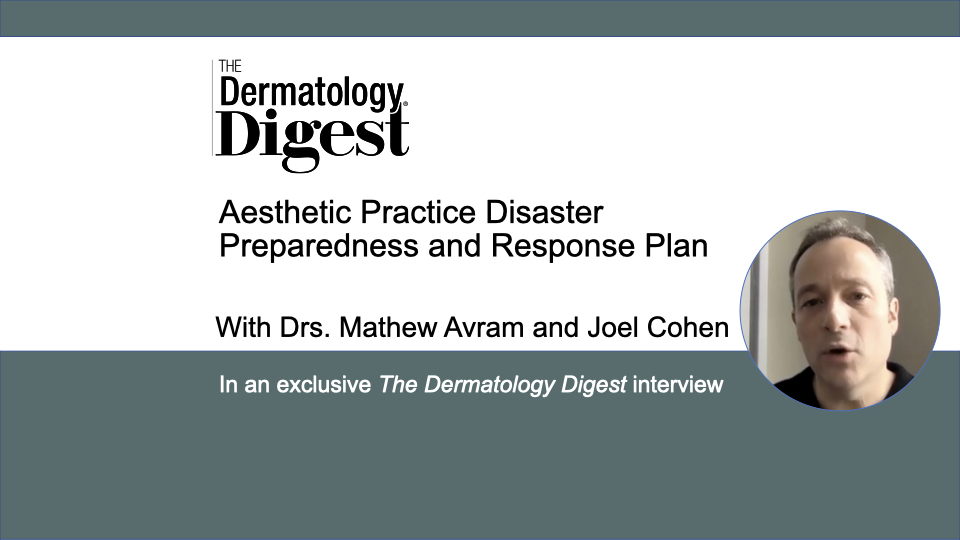Drs. Mathew Avram and Joel Cohen recently sat down with The Dermatology Digest to discuss the recommendations made by themselves and co-authors in the paper “Aesthetic Office Disaster Preparedness and Response Plan,” which appeared earlier this year in the Journal of Drugs in Dermatology.
Mathew M. Avram, MD, JD, is the director of the Mass General Dermatology Laser & Cosmetic Center and Faculty Director for Procedural Training in the Department of Dermatology, Harvard Medical School, Boston, Mass.
Joel L. Cohen, MD, is the director at AboutSkin Dermatology and DermSurgery, Greenwood Village, Colo.
The paper, a culmination of lessons learned by several specialty thought leaders, including the Cross-Specialty Allergan Aesthetics Preparedness Advisory Panel, provides a framework to ensure the practice is prepared for future crises and disasters.
The most important part of the paper, according to Dr. Mathew Avram, is the checklist that the authors developed as a tool for crisis management.
“We did it for the pandemic, but it’s also in the event that there’s a hurricane or there’s a tornado or other kind of natural disasters that can happen. I think all that’s very important,” says Dr. Avram.
The four checklist categories included are:
- Practice management
- Supplies and inventory
- Office staffing considerations and protocols
- Patient management strategies
Together, these are intended to help the practice prepared for anything that may disrupt the normal day-to-day.
For example, Dr. Joel Cohen points out the importance of having a plan for business communication in the event the office needs to be shut down.
“[Knowing] how we can turn things around very quickly with our [IT] company that hosts our website…so that we can give updates, not only on social media but we can turn our phones to an outgoing message,” he says.
Both Drs. Avram and Cohen say there are also lessons to be learned in terms of medical culture and community, particularly encouraging medical staff to stay home from the practice or hospital when they’re sick.
According to Dr. Avram, “If you don’t feel well, don’t come in.”
When a resident, fellow, or staff member tells him they can’t make it to work, the first the he does is thank them.
“I hope… that sense of community, and understanding that you might be infectious to other people really is something that carries on long term,” says Dr. Cohen. “If we look back at our [medical] training, it was almost a sign of weakness, if you had the audacity to call in sick.”
It’s the opposite of how medical students were trained, he says.
“I hear people occasionally complain about it but we’re in a completely different world now, and it’s a very serious virus, and if you pass it to patients, it can be tragic. So that’s a very important shift.”
Reference
Cohen JL, Dayan SH, Avram MM, et al. “Aesthetic Office Disaster Preparedness and Response Plan.” J Drugs Dermatol. 2021;20(1):10-16.


